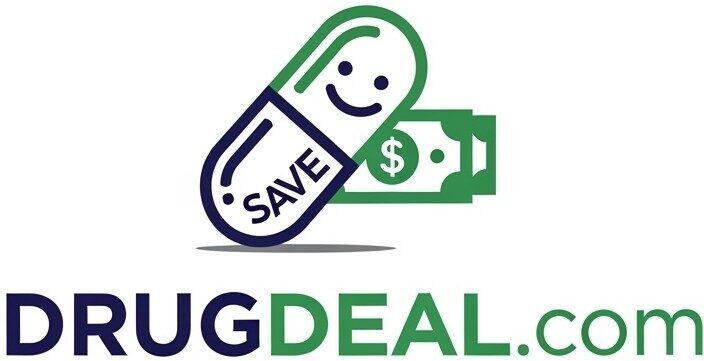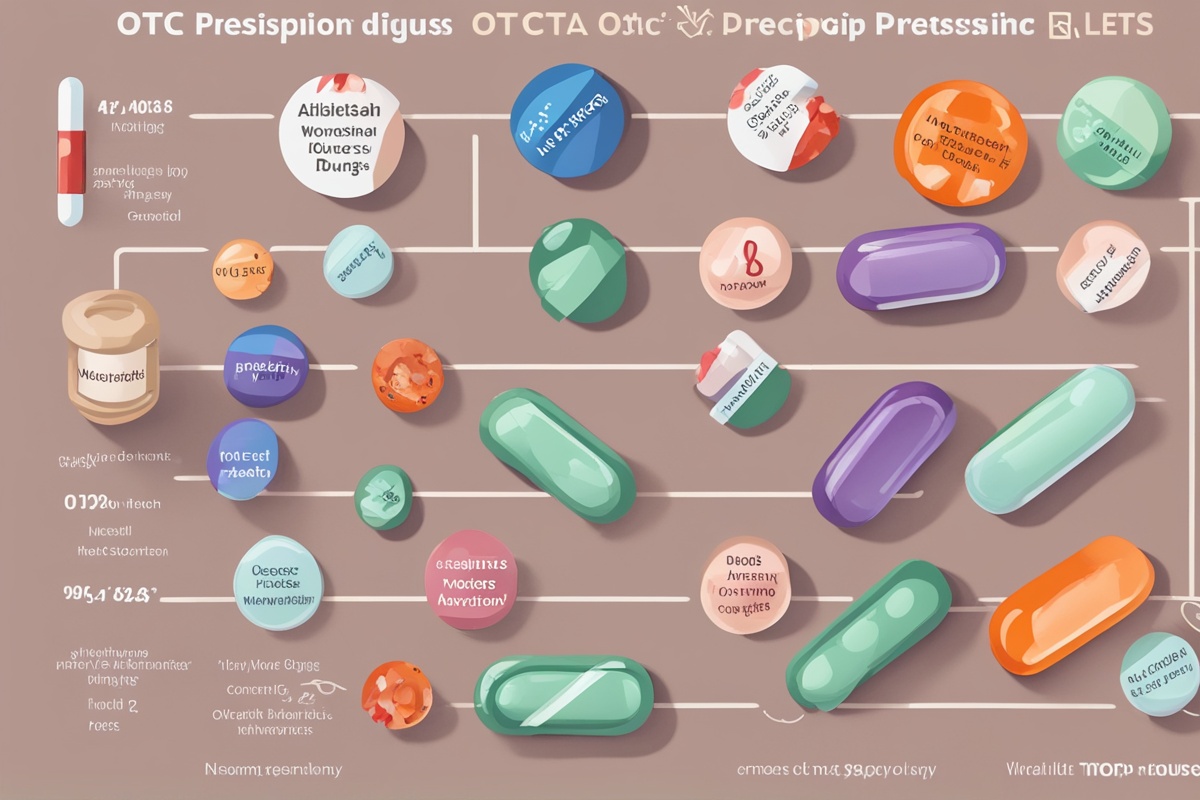Navigating the world of medications can feel like walking a tightrope. On one side, you’ve got over-the-counter (OTC) drugs—easily accessible, often affordable, and convenient for minor ailments. On the other, prescription medications stand as the heavy hitters, tailored to tackle more serious conditions under a doctor’s watchful eye. But where does one draw the line? Understanding OTC limitations versus prescription strength is key to making informed health decisions, ensuring you’re not just masking symptoms but addressing root causes safely and effectively. Let’s dive into this nuanced topic, breaking down the differences, limitations, and when to know you’re out of your depth with OTC solutions.
What Are OTC Drugs, and What Can They Really Do?
OTC drugs are the unsung heroes of your local pharmacy aisle. They’re medications you can grab without a prescription, designed for self-treatment of common, mild conditions like headaches, allergies, or heartburn. Think ibuprofen for that nagging backache after a long day or antihistamines to combat seasonal sneezing fits. They’re formulated to be safe for most people when used as directed, which is why they don’t require a doctor’s note. But here’s the rub: their strength and scope are intentionally limited to minimize risks of misuse or overdose.
Imagine you’re dealing with a persistent cough after a cold. You head to the drugstore, pick up a cough suppressant, and hope for relief. For a day or two, it might work like a charm. But if that cough lingers for weeks, an OTC remedy isn’t going to cut it. Why? Because OTC drugs are a Band-Aid, not a cure for underlying issues like bronchitis or asthma, which need prescription-strength intervention. Their limitation lies in their design—broad, safe, but not personalized.
Prescription Strength: Why It’s a Different Ballgame
Prescription medications, on the other hand, are the big guns. They’re specifically prescribed by healthcare providers to address conditions that OTC drugs can’t touch—think chronic pain, bacterial infections, or mental health disorders. These drugs often pack a stronger punch, with higher dosages or more potent active ingredients, and they come with a tailored approach based on your medical history. A doctor might prescribe an antibiotic like amoxicillin for a stubborn infection, something no OTC shelf will ever carry due to risks like antibiotic resistance if misused.
But with great power comes great responsibility. Prescription drugs often have stricter guidelines, potential side effects, and the need for monitoring. I recall a friend who struggled with severe migraines for years, popping OTC painkillers like candy with little relief. It wasn’t until a neurologist prescribed a specific triptan medication that she finally found a solution. That’s the strength of prescription drugs—they’re targeted. But they’re not a free-for-all; you can’t just decide to up your dose or skip a visit to the doc.
The Limitations of OTC: When You’re Playing with Fire
Understanding OTC limitations versus prescription strength starts with recognizing when you’re overrelying on quick fixes. OTC drugs are fantastic for short-term, minor issues, but they’re not built for chronic or complex conditions. Take pain relievers like acetaminophen. They’re great for a headache or fever, but if you’re taking them daily for joint pain, you might be masking arthritis or risking liver damage from overuse. The National Institute of Health warns that prolonged use of certain OTC meds without guidance can lead to serious health issues—something I’ve seen firsthand with a family member who overdid antacids for acid reflux, only to later discover an ulcer needing prescription treatment.
Another limitation? OTC drugs often don’t address the root cause. Got insomnia? A sleep aid like diphenhydramine might knock you out temporarily, but it won’t fix anxiety or sleep apnea driving the problem. And let’s not forget access to information—labels can be vague, and without a pharmacist’s input, you might misdiagnose your symptoms. Ever wonder if that “sinus headache” is really a migraine? OTC options leave room for guesswork, which can be a dangerous game.
When Prescription Strength Becomes Non-Negotiable
So, when do you wave the white flag on OTC and seek prescription strength? It’s often when symptoms persist, worsen, or come with red flags. For instance, if you’ve been battling heartburn with antacids for weeks and start feeling chest pain or difficulty swallowing, that’s a signal to see a doctor—could be GERD or something more sinister. Prescription proton pump inhibitors might be needed to manage acid production effectively, something OTC versions can’t match in potency or duration.
Then there’s the issue of safety. Some conditions, like high blood pressure or diabetes, require precise, monitored treatment. You wouldn’t dream of managing these with an OTC pill, right? A 2021 study from the American Heart Association highlighted that even “mild” hypertension often needs prescription meds to prevent long-term damage—something no amount of OTC supplements can replicate. Prescription strength isn’t just about power; it’s about precision and oversight, ensuring you’re not just treating symptoms but preventing complications.
Balancing Act: Knowing Your Limits and Seeking Guidance
Here’s where the rubber meets the road: understanding OTC limitations versus prescription strength means knowing your own limits. It’s tempting to play doctor—Google your symptoms, grab a bottle off the shelf, and call it a day. I’ve been there, trying to tough out a sinus infection with decongestants, only to end up with a fever and a trip to urgent care for antibiotics. Lesson learned: self-diagnosis has its pitfalls. A good rule of thumb? If an OTC med hasn’t worked after a few days, or if symptoms feel “off”—think fever, severe pain, or anything unusual—don’t hesitate to consult a professional.
Pharmacists are also goldmines of info. They can guide you on whether an OTC option is enough or if a doctor’s visit is overdue. And let’s not overlook the value of regular check-ups. A healthcare provider can spot patterns you might miss, ensuring you’re not stuck in a cycle of temporary fixes. Ultimately, it’s about balance—using OTC for what it’s meant for (minor, short-term relief) and leaning on prescription strength when the stakes are higher.
Practical Tips for Making Informed Choices
Ready to navigate this divide with confidence? Here are some actionable tips to keep in mind. First, always read labels on OTC meds—don’t skim. Know the active ingredients, dosage limits, and warnings. Second, track your symptoms. Jot down how long you’ve been dealing with an issue and whether OTC relief is consistent. If it’s not, that’s your cue to escalate. Third, don’t mix meds without advice; combining OTC and prescription drugs can lead to interactions—a pharmacist or doctor can clarify risks.
Lastly, build a relationship with your healthcare team. Whether it’s a primary care doc or a trusted pharmacist, having someone in your corner makes a world of difference. I’ve found that a quick chat with my pharmacist often saves me from second-guessing myself at the drugstore. And if you’re ever in doubt? Err on the side of caution. Your health isn’t worth the gamble of “just one more dose” of an OTC fix.
References
- National Institutes of Health – Over-the-Counter Medicine Not Always Safe
- American Heart Association – New Guidelines for High Blood Pressure
- U.S. Food and Drug Administration – OTC Drug Facts Label
- Mayo Clinic – Over-the-Counter Products
- Centers for Disease Control and Prevention – Antibiotic Resistance FAQs
Disclaimer: This article is for informational purposes only, based on general research and personal experience—it’s not a substitute for professional medical advice. Always consult a qualified healthcare provider for personalized guidance on medications, whether OTC or prescription. Health conditions vary widely, and what works for one person may not be suitable for another. If you have questions about symptoms, drug interactions, or treatment plans, seek advice from a doctor or pharmacist to ensure your safety and well-being. Your health decisions should always be informed by expert input tailored to your unique needs.
This content is for informational purposes only and not a substitute for professional advice.


